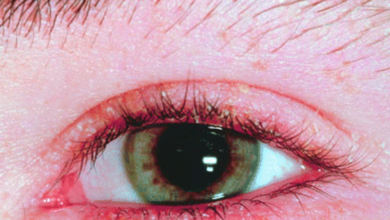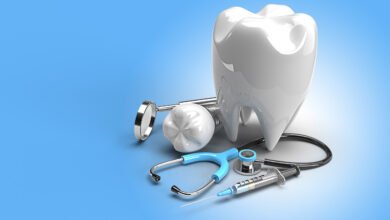The Ultimate Guide to Sexual Health: Tips for a Fulfilling Life

Sexual health is an integral aspect of overall well-being. It encompasses our physical, emotional, mental, and social components. Achieving and maintaining good sexual health contributes to a satisfying, intimate life and profoundly impacts our overall quality of life. This comprehensive guide will explore various aspects of sexual health and provide valuable tips to help you lead a fulfilling life.
Sexual health is more than just the absence of diseases or dysfunction; it is about experiencing intimacy positively and respectfully. It is about understanding your body, your desires, and your boundaries. Let us dive into the various dimensions of sexual health and explore how you can enhance this essential aspect of your life.
Understanding Sexual Health
Physical Aspects
Physical well-being is the foundation of sexual health. Maintaining a healthy body through proper nutrition and exercise is crucial. Pay attention to sexual hygiene, and always practice safe sex to prevent sexually transmitted infections (STIs).
Read More: 5 Best Exercises for Men for Better Sex
Emotional Well-being
Emotions play a significant role in sexual health. Open communication, trust, and emotional intimacy with your partner can lead to a more fulfilling sex life. Managing stress and addressing emotional issues are key components.
Mental Health
Mental health is closely tied to sexual health. Issues like anxiety and depression can affect your libido and sexual satisfaction. Seek professional help if you are struggling with these issues.
Social Factors
Social factors, such as cultural norms and societal attitudes, can influence how we perceive and experience sexuality. Be aware of these factors and make choices that align with your values and preferences.
Factors Influencing Sexual Health
Age
Sexual health needs change with age. Understanding these changes and adapting to them is essential for a satisfying sex life at any stage of life.
Lifestyle Choices
Your lifestyle choices, including diet, exercise, and substance use, can impact your sexual health. Maintain a balanced lifestyle for optimal well-being.
Relationships
Healthy relationships are the cornerstone of sexual health. Communication, trust, and mutual consent are vital for a fulfilling, intimate life.
Tips for Physical Wellness
Balanced Diet
A nutritious diet supports overall health, including sexual health. Foods rich in antioxidants, vitamins, and minerals can boost libido and sexual function.
Regular Exercise
Exercise increases blood flow, reduces stress, and enhances mood – all of which can contribute to a better sex life.
Safe Practices
Use protection during sexual activities to prevent STIs and unwanted pregnancies. Regular check-ups are also crucial.
Emotional Well-being and Intimacy
Communication
Open and honest communication with your partner about desires, boundaries, and expectations is essential for a satisfying sex life.
Stress Management
Stress can negatively affect sexual health. Practice stress-reduction techniques like mindfulness and relaxation.
Mental Health and Sexual Health
Self-esteem
A positive self-image and self-esteem are crucial for sexual confidence and satisfaction.
Anxiety and Depression
Seek professional help if you are struggling with anxiety or depression, as they can significantly impact your sexual well-being.
Navigating Relationships
Communication and Trust
Effective communication and trust are the foundations of healthy relationships, including sexual ones.
Consensual Intimacy
Always ensure that both partners give informed and enthusiastic consent for sexual activity.
Relationship Satisfaction
A fulfilling relationship often leads to a satisfying sex life. Invest time and effort into maintaining a strong emotional connection.
Sex Education and Awareness
Comprehensive Sex Education
Stay informed about sexual health through comprehensive sex education programs and reliable resources.
Staying Informed
Keep up with the latest developments in sexual health and wellness to make informed choices.
Common Sexual Health Issues
Sexually Transmitted Infections (STIs): STIs, also known as sexually transmitted diseases (STDs), are infections that spread through sexual contact. Common STIs include chlamydia, gonorrhea, syphilis, and human papillomavirus (HPV). Safe sex practices, regular testing, and vaccination (for certain STIs) are essential for prevention and early detection.
Erectile Dysfunction (ED): Erectile dysfunction is the inability to achieve or maintain an erection sufficient for sexual intercourse. Various factors, including age, stress, underlying medical conditions, or psychological issues can cause it. Consulting a healthcare provider can help identify the cause and explore treatment options.
Performance Anxiety: Performance anxiety is a psychological issue where individuals worry excessively about their sexual performance, leading to stress and sexual dysfunction. Open communication with a partner and, if necessary, therapy can help manage performance anxiety.
Menopause and Sexual Health: Menopause is a natural phase in a woman’s life when her menstrual periods cease. It can lead to hormonal changes that affect sexual health, such as vaginal dryness and reduced libido. Healthcare providers can offer guidance on managing these changes through hormone therapy and other methods.
Premature Ejaculation: Premature ejaculation occurs when a man ejaculates sooner than his partner desires during sexual intercourse. It can be related to psychological factors, relationship issues, or hypersensitivity. Techniques such as the stop-start method and therapy can help address this concern.
Low Libido: Low libido, or decreased sexual desire, can affect individuals of any gender. Stress, hormonal imbalances, medication side effects, and relationship issues can contribute to this problem. Consulting with a healthcare provider or therapist can assist in identifying and addressing the underlying causes.
Pain During Sex (Dyspareunia): Dyspareunia refers to pain or discomfort experienced during sexual intercourse. It can result from various factors, including infections, vaginal dryness, endometriosis, or psychological issues. Seeking medical evaluation is vital to determine the cause and explore treatment options.
Sexual Addiction: Sexual addiction involves excessive sexual behaviors that interfere with daily life and relationships. It is a complex issue that may require therapy and support groups.
Body Image Concerns: Negative body image can impact self-esteem and confidence in sexual situations. Working on self-acceptance and seeking therapy or counseling can help improve body image and sexual satisfaction.
Delayed Ejaculation: Delayed ejaculation refers to the difficulty or inability to achieve ejaculation during sexual activity. It can be linked to psychological factors, medications, or physical issues. Consultation with a healthcare provider or therapist is essential for diagnosis and treatment.
Seeking Professional Help
Sex Therapists
Sex therapists specialize in addressing sexual issues and can provide guidance and therapy to improve sexual health.
Medical Professionals
If you are experiencing physical issues affecting your sexual health, consult a medical professional for evaluation and treatment.
The Role of Technology
Online Resources
The internet offers a wealth of information and resources for improving sexual health. Use reliable sources for guidance.
Telehealth
Telehealth services allow you to seek professional advice and support from the comfort of your home.
Read More: A New Study Confirms that Better Sleep Boosts Your Sex Life
Conclusion
In conclusion, sexual health is a fundamental aspect of your overall well-being and quality of life. It encompasses physical, emotional, mental, and social dimensions, all of which are interconnected. By focusing on various aspects of sexual health, you can lead a more fulfilling life and enjoy satisfying intimate relationships.
Remember that open and honest communication with your partner and trust and emotional intimacy form the basis of a healthy sexual relationship. Managing stress, maintaining a balanced lifestyle through proper nutrition and exercise, and practicing safe sex are all essential components of sexual well-being.
Mental health plays a crucial role, too. A positive self-image and seeking professional help for anxiety and depression can significantly improve your health. Additionally, staying informed about sexual health through comprehensive sex education and reliable resources is essential.
Common sexual health issues like sexually transmitted infections, erectile dysfunction, and menopause can be addressed with the help of medical professionals and sex therapists. The advent of technology has also made it easier to access information and seek telehealth services from the comfort of your home.
Incorporating these tips and practices can lead to a more fulfilling and satisfying sexual journey. Remember that sexual health is an ongoing process, and it is essential to prioritize it to enjoy a fulfilling and healthy life.
FAQs
What is sexual health, and why is it important?
Sexual health encompasses physical, emotional, and social well-being related to sexuality. It is important for overall well-being and quality of life.
How can I improve my sexual health as I age?
Stay active, maintain a healthy lifestyle, and adapt to the changes with age. Communication with your partner is also crucial.
Are there natural ways to enhance sexual wellness?
A balanced diet, regular exercise, and stress management can naturally boost sexual wellness.
When should I seek professional help for sexual health issues?
If you are experiencing persistent physical or emotional issues related to sexual health, it is advisable to consult a healthcare provider or sex therapist.
Where can I find reliable information about sexual health? You can find reliable information from reputable websites, healthcare providers, and comprehensive sex education programs.







